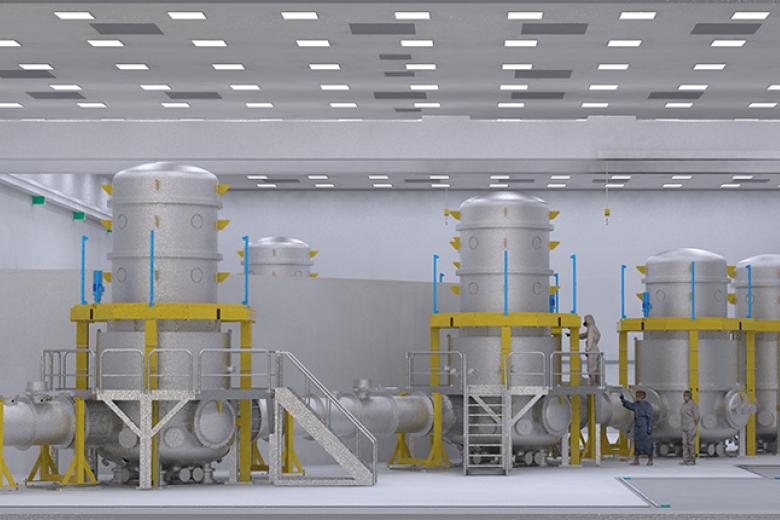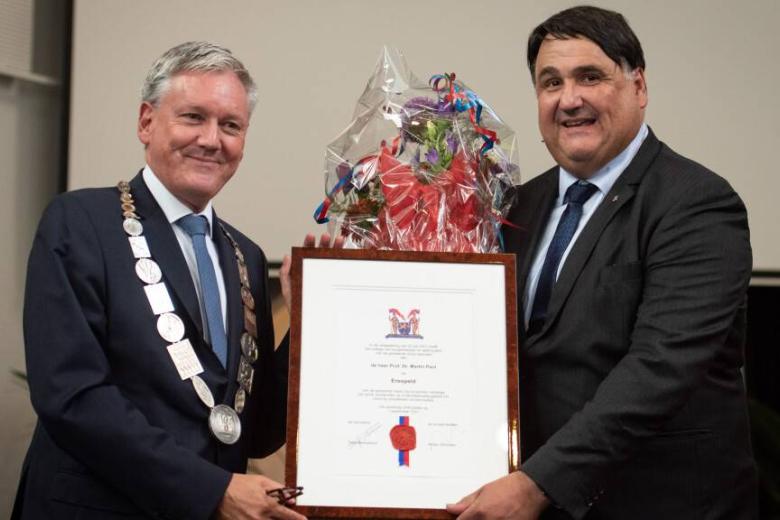Mask certification via new lab at UM institute AMIBM
Manufacturers of non-medical masks in the Netherlands have recently been required to meet certain standards if they want to receive a certification mark. The Aachen-Maastricht Institute for Biobased Materials (AMIBM), located on the Brightlands Chemelot Campus near Geleen, will be assessing masks on the basis of the new standards at a newly opened mask testing centre. Approved producers will receive a certification mark, which will enable shoppers to see immediately whether a mask offers sufficient protection, and also whether it is made of environmentally friendly materials or contains toxic substances.
Protection standard
Since the beginning of December, it has been mandatory in the Netherlands to wear a mask in public indoor areas. To be eligible for certification, non-medical masks must offer 70 per cent protection against the transmission of various germs (medical masks offer at least 95 per cent protection). The NEN standardisation institute has therefore presented a new certification system today for non-medical face masks. Scientists at AMIBM – a partnership between Maastricht University (UM), the RWTH Aachen University and the German research organisation Fraunhofer-Gesellschaft – have contributed to the standard and provided substantial scientific input. From today, AMIBM will also be assessing masks according to these requirements at its new laboratory.
Richard Ramakers is the head of AMIBM and Professor Stefan Jockenhövel is the scientific director. They have been involved in establishing the new test centre from the start: ‘We’ve been testing medical masks since the beginning of the pandemic. Increasingly we were also asked to test masks for the general public, but nobody really knew what standards they were supposed to meet. There are huge differences in quality among the masks on the market. It’s good that there’s now a standard so people can immediately see in the shop whether a mask actually offers protection.’ Among the non-medical face masks being tested at the lab are those produced by Boogaard Textiles in Limburg.
Sustainable masks
As well as testing whether masks meet the certification requirements, AMIBM is working on the development of sustainable masks that are biodegradable. In many countries mask-wearing is compulsory, and this poses a potential waste problem, with microplastics ending up in the environment. Biodegradable masks made of sustainable materials make a valuable contribution to solving this problem, as does the testing of masks which are washable and therefore reusable.
Ruud Burlet is Limburg’s provincial executive member responsible for sustainability, circular economy and the Brightlands Chemelot Campus: ‘This development strengthens AMIBM’s unique position as an innovative scientific research centre in the heart of the province and one of the driving forces behind the transition to a circular Limburg. The institute cleverly keeps abreast of the rapidly changing reality in the global corona crisis and speedily anticipates new demands and needs. I see making mask manufacturing more sustainable as the logical next step.’
Also read
-

-
International gravitational wave laboratory opens in Maastricht
Demissionary Minister of Education, Culture and Science Ingrid van Engelshoven will open ETpathfinder in Maastricht this afternoon. The state-of-the-art physics laboratory will serve as a testing ground for the development of technologies for future gravitational wave detectors.

-
Martin Paul receives city of Venlo's badge of honour
UM President Martin Paul received the badge of honour ('erespeld) of the city of Venlo on 7 September from Mayor Scholten.
